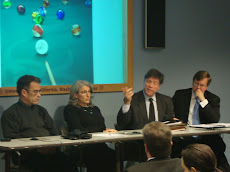FDA administrators have overruled FDA scientists and FDA advisory committees to approve questionable medical devices and drugs. FDA's infrastructure for reviewing the effectiveness and safety of devices and drugs after licensure is bare bones. Therefore, once approved, it is very hard to take a product off the market. The excerpts below are telling:
...One of the most problematic devices, the A.S.R., or Articular Surface Replacement, was recalled last year by Johnson & Johnson and accounted for 75 percent of the complaints reviewed by The Times.
A precise count of failed implants reported to the F.D.A. is hard to come by because of the agency’s overlapping reporting system, though The Times sought to eliminate duplicate reports about the same incident. Some complaints came from outside the United States.
Under F.D.A. rules, many all-metal devices were sold without testing in patients or without a requirement that producers track their performance. But in an unusual intervention, the F.D.A. in May ordered producers to study how frequently the devices were failing and to examine the threat to patients. Now, researchers say, producers face substantial hurdles in recruiting the hundreds of patients needed to conduct sound studies because of the lack of patient registries.
“They are grasping at how they are going to get this information,” said Dr. Robert S. Namba, an orthopedic surgeon with Kaiser Permanente...
“It is like playing Russian roulette,” said Dr. Geoffrey H. Westrich, an orthopedic surgeon at the Hospital for Special Surgery in New York, who has stopped using all-metal implants.
Dr. William Maisel, the chief scientist of the F.D.A. division that oversees medical devices, said he believed that producers would mount rigorous studies and find answers. But he acknowledged that it could take several years.
“There is not an existing infrastructure for studying this kind of information,” Dr. Maisel said...
Meanwhile, researchers say it may be a year before standard protocols are formulated that may be central to the future studies, like a uniform procedure to measure metallic ions in a patient’s blood or how to calibrate diagnostic equipment to best detect tissue damage.










No comments:
Post a Comment